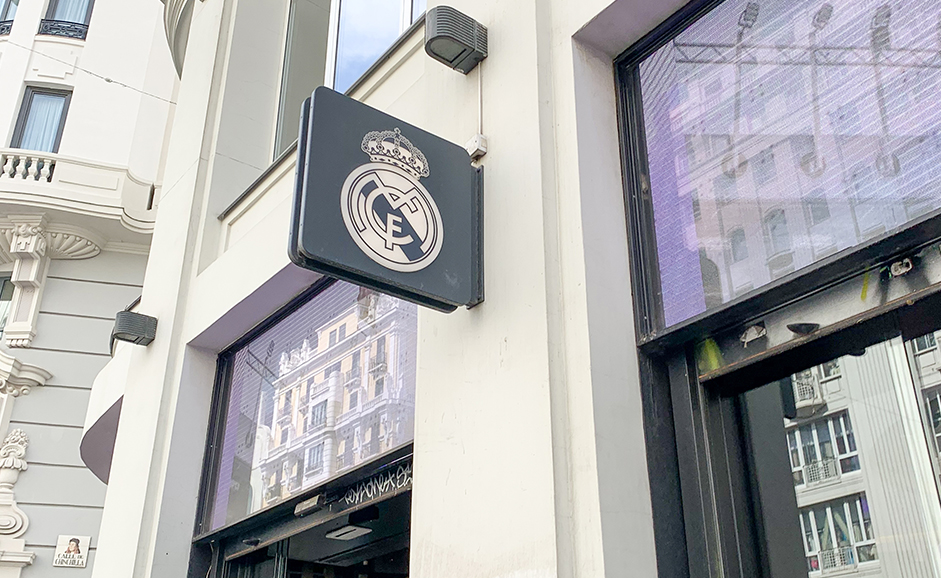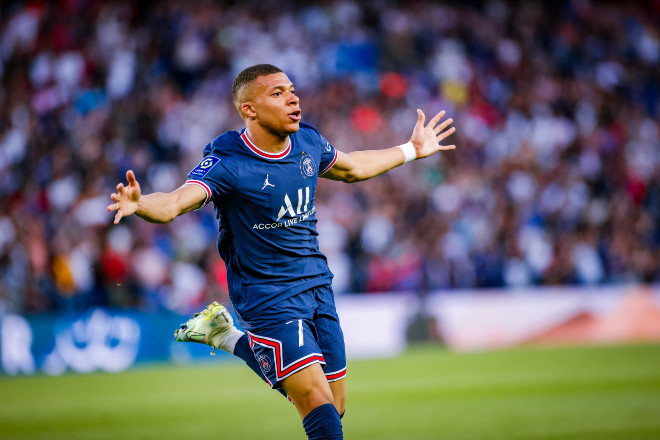The evolution of branding in football: Real Madrid, PSG and the power of cooperation

Sport has played a significant role in people’s lives for some time now, both directly and indirectly. Brands have spotted this craze for sports, particularly football, and have taken advantage of it for years. The 20th century saw the development of a new marketing strategy based on promoting products through sport. Thanks to this, many brands have been able to develop and enhance themselves. In addition, brands have made the most of their relationships with great sportsmen and women to ensure they have a major impact. The benefits are mutual, and brand value increases. Amidst all this, football has exploded, growing exponentially to become the world’s best-known sport, with over 4 billion followers.
Real Madrid, Manchester United and Barcelona F.C. are among the best-known brands in the world of football, and their value is huge. Forbes began publishing annual football valuations in 2004, and Real Madrid and Manchester United have consistently made the top 5. In addition, Real Madrid has taken first place seven times, and Manchester eleven times. According to Forbes, the fifty most valuable international football club brands are worth a total of €20,133 million, up 3% on the €19,606 million recorded in the report’s previous edition.
The value increase is not due to turnover, which rose by just 2.5% to an average of $496 million per team, but to the higher enterprise multiples (enterprise value divided by turnover) that buyers pay for teams. The average enterprise multiple for the 20 most valuable teams this year is 5.9, up from 4.8 a year ago.

Real Madrid leads the ranking
This year, for the second time in a row, Real Madrid has been ranked as the most valuable football brand in the world. The club’s brand value was estimated at €1,276 million, putting it at the top of the rankings. According to Brand Finance, Real Madrid club “has been able to qualify regularly for the Champions League, year after year. This steady stream of revenue and Champions League status has played a central role in the club’s overall success.”
In 2022, Brand Finance revealed that the Spanish team was most likely to be considered the ‘best club in the world’ by fans. Brand strength attracts fans, investors, players and sponsors to engage with the club, bringing commercial value through increased revenue, pricing, growth and sponsorship, thereby reducing the risks to profitability associated with poor on-field performance
Real Madrid CF is considered one of the world’s wealthiest and most financially powerful football clubs, enabling it to compete at the highest level in terms of player transfers, wages and infrastructure development. Despite not reaching this year’s Champions League final, Real Madrid CF had the second-highest income in the competition, behind Manchester City F.C. More generally, the value and strength of the club’s brand remained strong thanks to several sponsorship deals, including a renewed partnership with Emirates and a new collaboration with BMW as the official vehicle partner.
What about PSG?
PSG is one of French football’s biggest, if not the biggest, clubs. It has a good relationship with Real Madrid – although this has not always been the case.
The Madrid/Paris connection is fluid regarding the development of European football, particularly with the creation of the European Super League. For the French club, 2022 was a promising year, with revenues of €650 million and a budget of €700 million for the 2022-2023 season. Sponsorship and partnerships have only increased, especially since the arrival of Lionel Messi at the club. According to Forbes magazine, the value of Paris Saint-Germain will have increased by 28% in the 2021-2022 season, and the brand’s value will have risen by almost 300% in five years, the highest growth of any football club surveyed.

Given the brand value of football clubs, it seems clear that the link between brands and clubs is direct. As we have seen, there are more and more partnerships, advertising and sponsorships with football clubs. The higher the club’s value, the more brands turn to it. For example, in February 2020, Paris Saint-Germain and Jordan Brand launched their first women’s collection. The collection featured a mix of lifestyle and sportswear pieces. Four months later, the club and the Nike subsidiary continued their collaboration by unveiling the PSG third jersey and clothing collection.
In 2020, the club collaborated with Thierry Lasry (eyewear) and the Replay clothing brand. Hugo Boss has also worked with Real Madrid, Bayern Munich and Inter Milan in recent years. Seeing the most famous players in numerous advertisements (Gillette shavers or the operator SFR) or advertising posters is familiar because the brands know well that the impact will be much more significant.
The last FIFA World Cup confirms this marketing strategy all the more: the sheer scale of the event has made it the world’s leading marketing platform. If the event is to be organized and run smoothly, it is clear that commercial partners’ support in logistics and merchandising is vital. Partners include Coca-Cola, Adidas and Hyundai. The collaboration benefits both sides: the organizations grow, and the brands grow with them.
Stay tuned!

- Contacto DPO: privacy@telecoming.com
- Finalidad del tratamiento: suscripción al blog.
- Legitimación del contrato: consentimiento.
- Destinatario de cesiones o transferencias: no se efectúan transferencias de datos fuera de la UE.
- Derechos de las personas interesadas: acceso, rectificación, supresión, oposición, limitación del tratamiento, portabilidad de los datos e interposición de reclamación ante la AEPD.
VISIT US
Paseo de la Castellana 95
16th floor – 28046
MADRID | SPAIN
